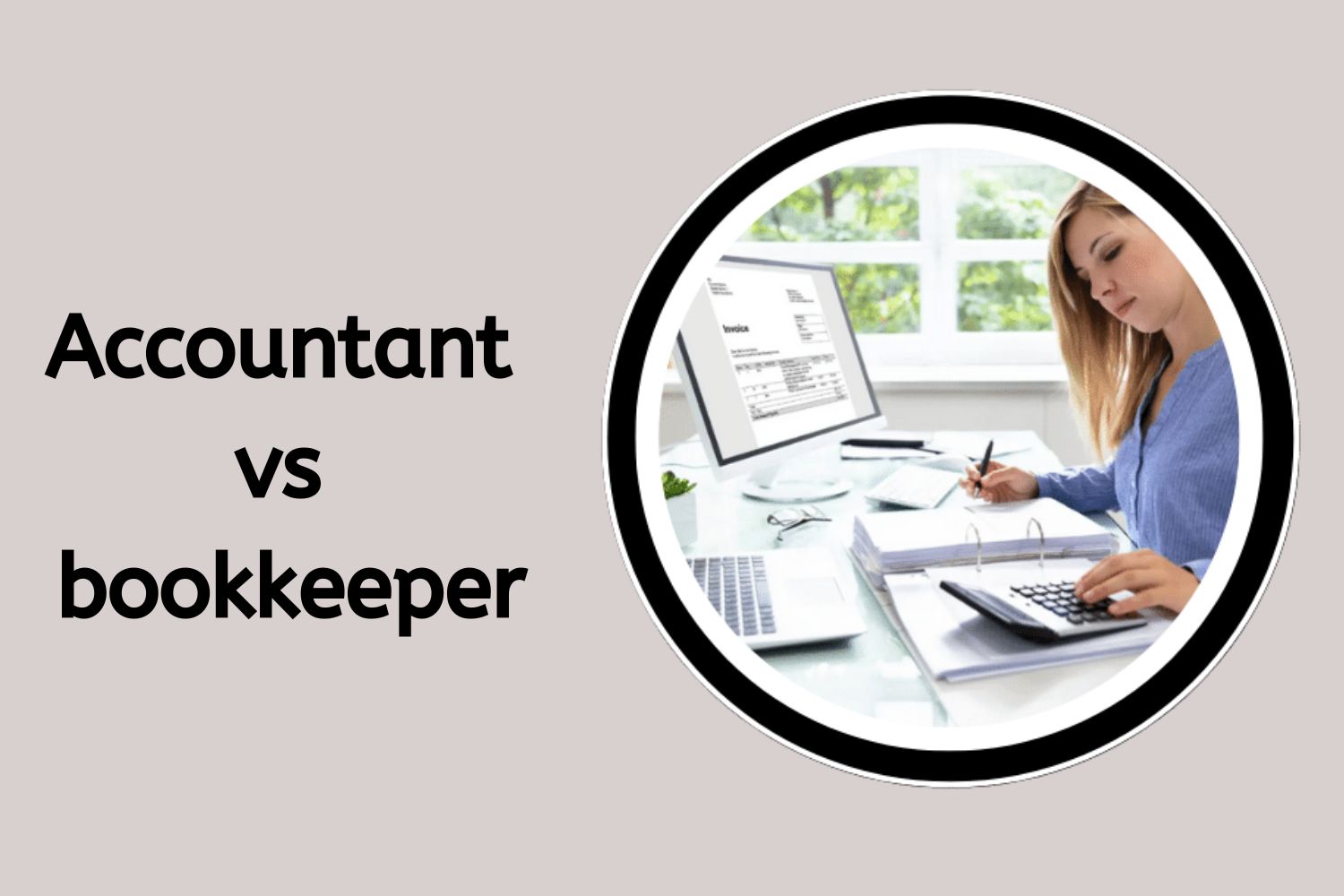
Accountant vs bookkeeper : what’s the difference?
It is exciting to run a business, but it also requires a lot of paperwork. It is vital to have an accountant or bookkeeper who is experienced on your team. You can focus on growth while they take care of your numbers. These two roles are different and you need to understand the differences if you want to get the most out of your resources.
You need the right support as a businessman. Accounting and bookkeeping uk are usually at the top of any list of essential professional services. Many people mistakenly believe that these roles are the same. There are many similarities between the tasks that an accountant and a bookkeeper perform for you. However, there are also some differences.
Don’t get in a situation where an accountant is needed but you only have a bookkeeper. Here’s a quick and simple explanation of the differences between these two roles and what situations call for which expertise.
What is the role of a bookkeeper?
Bookkeeping is a function that has existed for thousands of years. Bookkeeping is a vital practice for business. The daily recording of financial data, classification, and analysis of business transactions is called bookkeeping. Your bookkeeper ensures that you are able to see what’s going on in your finances.
Unlike the early days of bookkeeping, which began with scratchings on a tablet made from stone, today’s practice is based on software like Xero and FreeAgent. The main job of a bookkeeper is to enter financial transactions in the software system you choose, ensure that all bills are paid on time, and chase customers who haven’t made payments.
Your bookkeeper’s job is to turn an overwhelming amount of receipts, invoices, and bills into a simple log of the money that comes in and goes out. Bookkeepers offer a variety of other services, including payroll, VAT returns, and tax filing.
The roles of an accountant and a bookkeeper start to overlap when they provide additional services. Both are also likely to work outside your company. Your bookkeeper, like your accountant, may also be responsible for managing other businesses.
What is the role of an accountant?
A business accountant is not as concerned about recording your financial activities. They are more concerned about ensuring that your business meets its tax and reporting requirements. Your accountant may work less frequently than a bookkeeper, who will update your books weekly, monthly or fortnightly. Your accountant may be responsible for your annual or quarterly accounts or tax returns.
A good accountant’s versatility is what makes them so special. A chartered accountant must demonstrate their expertise in 15 different areas of finance and pass the exams to become one. These are highly skilled professionals that can add value to your business.
Accountants help their clients manage their business strategically, including tax planning and ensuring that all tax benefits are taken advantage of. Accountants can help you with your cash flow management, reduce your costs, plan your growth, manage your financial planning, and even provide advice for your personal affairs.
You may wish to ask your accountant any complicated questions first, due to their greater level of training. You can expect them to be familiar with things like VAT and PAYE, as well as corporate reporting and tax.
Read : Steps to streamline aml screening processes for financial institutions
What is the best one for me?
Accounting and bookkeeping are two roles that are very different but are both extremely valuable for business owners. They are essential for keeping track of finances, complying with regulations, and ensuring compliance. Without them, you would need to spend a lot of time on these tasks and may even require some extra training. What situations would be best handled by an accountant, and which ones by a bookkeeper?
Here are some different scenarios to help you decide who you should call.
Need help processing financial documents and invoices?
Your bookkeeper can be a great asset in this area. In most cases, your accountant won’t be able to handle such tasks as processing invoices for purchases and expense claims. They will also not be able to issue invoices or manage financial documents. Your bookkeeper may also pursue late payments from customers.
Want help with VAT returns?
Your accountant and bookkeeper can both help you. Both are suited to other tasks, such as posting journal entries and running payroll. They can also provide basic tax advice.
Limited company accounts are required.
Only your accountant can perform this task for you. A bookkeeper cannot prepare cash flow forecasts, management accounts, or business plans, nor can they calculate capital gains tax. All of these tasks should be performed by an accountant.
Need specialist tax advice?
You would again need to contact your accountant. An accountant’s role can become more strategic than that of a bookkeeper.
You must choose the right person for your business, whether it’s a bookkeeper or an accountant. Take the time to talk to them about your goals. They will be playing a key role in your business. With the right bookkeeping services in the UK, your business will be able to move forward confidently.





